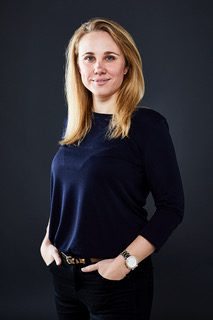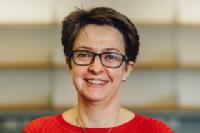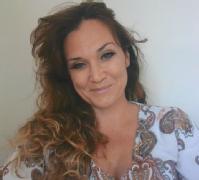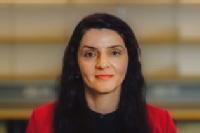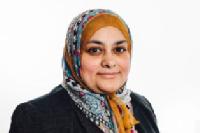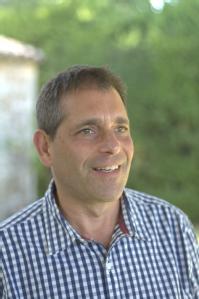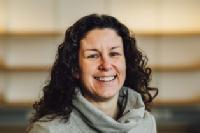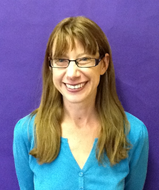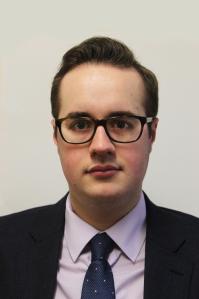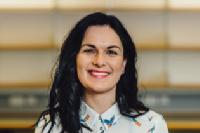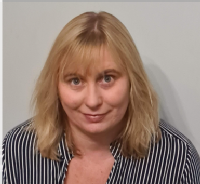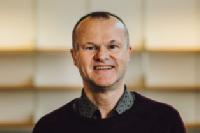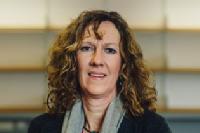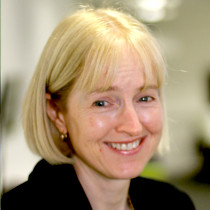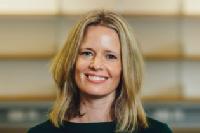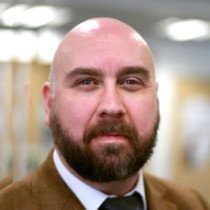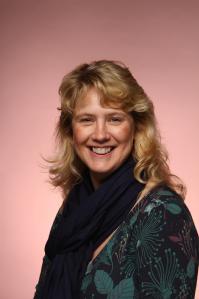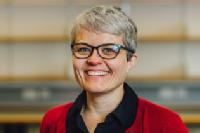Research in Action Conference 2020
Welcome to the 2020 CTE Research in Action Conference
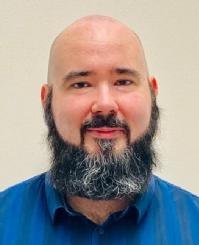 The Research in Action Conference has run annually since 2014 and brings together educational researchers from across the midlands and beyond. You will hear from a variety of presenters, ranging from Warwick staff and teachers from our local schools to professional researchers from external organisations and academics at other universities. The conference is an opportunity for you to get a feel for what educational research is and how it can impact on you, your school and your pupils. You will get a sense of how being research-engaged can enhance your professional development and there will be opportunities during the day to become actively involved in ongoing research projects, as well as write a review of the event for the British Educational Research Association. There is a full programme of speakers throughout the day and you can customise your conference experience by choosing which sessions to attend. There should be something here for everyone and I really hope you enjoy the day.
The Research in Action Conference has run annually since 2014 and brings together educational researchers from across the midlands and beyond. You will hear from a variety of presenters, ranging from Warwick staff and teachers from our local schools to professional researchers from external organisations and academics at other universities. The conference is an opportunity for you to get a feel for what educational research is and how it can impact on you, your school and your pupils. You will get a sense of how being research-engaged can enhance your professional development and there will be opportunities during the day to become actively involved in ongoing research projects, as well as write a review of the event for the British Educational Research Association. There is a full programme of speakers throughout the day and you can customise your conference experience by choosing which sessions to attend. There should be something here for everyone and I really hope you enjoy the day.
Dr. John Thornby, December 2020
Blackboard Collaborate
The live conference sessions will be delivered via Blackboard Collaborate. We recommend using the latest version of Firefox or Google Chrome as your browser. Please do not use Internet Explorer as you may experience audio issues. Further Blackboard Collaborate support material (including audio troubleshooting) is available here:
The live sessions will be recorded where possible/appropriate and made available after the conference. Resources from the sessions (e.g. presentations) will also be made available where possible.
How to navigate this page
This page will enable you to access all of the live and recorded conference content. Live sessions start at 10.00 am on Monday 14th December. We recommend you check you are using a compatible browser before arriving from 9.50 am in the online room for the 10.00 keynote presentation. To find out more about individual speakers simply click on the named links below.
The pre-recorded resources can be found on this page by clicking here
Here is a copy of the full timetable
| Session one | Session two | Session three | Session four |
Conference timetable - live sessions
Time |
Activity |
9.50 - 10.00 am
@warwickcte |
Upload a photo of yourself at the start of the day tagging us in on Twitter @warwickcte. Check you are using a compatible browser before arriving and that your audio is working ahead of the keynote session. |
10.00 am - 11.00 am |
Keynote speech
|
Parallel sessions
|
|
11.15 am - 12.15 pm |
Session one |
|
|
Vikki Armeson: Short term planning versus medium term planning: What is the effect of introducing a medium-term planning framework on a cohort of MFL trainees?This session will present the findings of an Action Research project carried out with ITE Secondary trainees. It will consider the views, beliefs and reflections of trainees when planning individual lessons in comparison to planning sequences of lessons. It will also look at the impact on trainees' planning competencies and trainees' planning workload. It would be suitable for Secondary teachers and mentors involved in ITE. |
|
|
Adam Chapman: Exploring the perceptions of privacy and risk taking behaviour on social networking sites from young people living in LutonThis session will explore perceptions of behaviour from the perspective of young people aged between 16-25 living in Luton, UK. This was part of a small scale research project that aimed to explore and understand young people’s behaviour online, a topic of interest within the field of Digital Sociology and Education. There will be some consideration of the identity of professionals within the education sector and the importance of maintaining a professional identity when working with children and young people in 2020. |
|
|
Prof. Des Hewitt: Making sense of primary and early years setting through research – a practitioner’s journeyHow do primary and early years’ practitioners engage with research to make sense of the classroom:
|
|
|
Sue Johnston-Wilder: Addressing maths anxietyThis session will be presented twice, once for those who would be happy to teach maths and once for those who tend to avoid maths themselves but come into contact with students. We will consider the origins of maths-specific anxiety and avoidance, and what can be done to build maths-specific resilience and maths-specific psychological safeguarding, both within class and across schools. Please have a pen and paper available during the session as you will be asked to write things down. |
|
|
Kate Mawson: Getting published: A workshop aimed at helping you to get publishedKate will lead a workshop style event where you will look at some ways of maximising publishing opportunities. Please come to the session with an idea of the area of your work or studies that you may like to publish, as this will help you with some of the activities. Aimed at educators and researchers who haven't yet been published, people from all areas of education are welcome, this session is cross phase and suitable for those with academic and/or non-academic publication aims. |
|
|
Georgina Newton and Dr Holly Heshmati: Empowering preservice teachers to develop personal and professional resilienceThis presentation aims to explore practical strategies preservice teachers can use to develop personal and professional resilience. The session will also include a practical look at recent research on teacher well-being and the opportunity to boost own well-being. Participants will be introduced to the five aspects of resilience as a multi-dimensional construct. There will be a focus on the exercise of agency in employing practical strategies to overcome daily professional challenges. Additionally, the presentation discusses the possible implications for initial teacher education programmes, school leaders and preservice teachers as active agents to develop more resilience. |
|
|
Safina Perveen: A critical review of subject mastery recruitment initiatives – is this supporting inclusivity & social justice for all?This session aims to share a critical policy analysis of the subject knowledge enhancement (SKE) course offered to prospective science teacher trainees. To what extent this supports teachers' identity early in their career and the implications this has on inclusivity and social justice for all. With persistent shortage of teachers for some subjects in schools and the current pandemic climate, this may have further exacerbated social inequality. Arguments to support more complementary trajectories are highlighted to help close the gap. |
|
|
Sarah Ross: Getting evidence into use in educationThe presentation will focus on why the use of evidence in education is important and how the translation of evidence to practice can be achieved. |
|
|
Dr Marcelo Staricoff FCCT: The Joy of Not Knowing (JONK)On the verge of the publication of his new book entitled ‘The Joy of Not Knowing’ (Routledge 2021), Marcelo will demonstrate how a career of action research and collaboration as a primary teacher and headteacher and now lecturer and consultant, inspired the concepts that underpin this very innovative, creative thinking, thought provoking, lifelong-learning and collaborative approach to teaching and learning, to all areas of the curriculum and to school leadership: https://www.routledge.com/The-Joy-of-Not-Knowing-A-Philosophy-of-Education-Transforming-Teaching/Staricoff/p/book/9780367172725 This session will equip participants with a multitude of easy to implement ideas that build on current practice and that have been found to have a very positive impact on children’s love of learning and their life chances. The workshop will enable participants to:
The session is equally suitable for students, teachers of all phases, including Early Years, Primary and Secondary and ITT, support staff and senior leaders. |
|
|
Faye Wills: What is being an NQT teacher-researcher really like?A glimpse into the life of a teacher-Researcher whose training was cut short by 3 months, and who is pursuing a PhD at the same time as completing her NQT year! |
12:30 pm - 13:30 pm |
Session two |
|
|
Becki Coombe: Supporting the engagement of disaffected and disengaged learners / those with low academic self-esteemWe will consider ideas for how to create and/or support positive learning environments where learners engage with academic tasks and feel confident to both attempt completion of learning outcomes AND ask for specific support where they feel it is needed. We will consider potential obstacles to learners’ progression and explore possible methods to motivate, such as how feedback is presented. We will take a look at:
This may particularly appeal to those considering focusing their teaching on working in inclusion centres (within or external to a mainstream school), those with a desire to teach in dedicated special educational needs settings, or, those that would appreciate a few more ideas on engaging the disengaged within their mainstream settings. |
|
|
Dr Corinna Grindle: Teaching Early Numeracy to Children with Developmental DisabilitiesThere is a scarcity of research on how best to teach numeracy to children with a developmental disability. If teachers turn to published curriculum guides for guidance, they also typically find a lack of suitable tools for assessing children’s numeracy skills and knowledge and few structured and comprehensive teaching programmes available. In this presentation I will describe the Teaching Early Numeracy to Children with Developmental Disabilities (TEN-DD) approach. The presentation will summarize the comprehensive assessment and learning framework for TEN-DD and discuss its implications for teachers. Some research findings will also be presented showing that children with developmental disabilities can show significant improvement in their attainment of numeracy skills after they have been taught using TEN-DD. |
|
|
Alex Ireland: Why is student leadership so important in secondary schools?This session will explore the following:
|
|
|
Kate Mawson: Getting published: A workshop aimed at helping you to get publishedKate will lead a workshop style event where you will look at some ways of maximising publishing opportunities. Please come to the session with an idea of the area of your work or studies that you may like to publish, as this will help you with some of the activities. Aimed at educators and researchers who haven't yet been published, people from all areas of education are welcome, this session is cross phase and suitable for those with academic and/or non-academic publication aims. |
|
|
Georgina Newton and Dr Holly Heshmati: Empowering preservice teachers to develop personal and professional resilienceThis presentation aims to explore practical strategies preservice teachers can use to develop personal and professional resilience. The session will also include a practical look at recent research on teacher well-being and the opportunity to boost own well-being. Participants will be introduced to the five aspects of resilience as a multi-dimensional construct. There will be a focus on the exercise of agency in employing practical strategies to overcome daily professional challenges. Additionally, the presentation discusses the possible implications for initial teacher education programmes, school leaders and preservice teachers as active agents to develop more resilience. |
|
|
Jen Rowan-Lancaster: Teaching LGBTUA+ content in schools: an ethnographic approachDuring the first half of this session I will share some highlights from my EdD research which explores trainee teachers’ fears in relation to teaching LGBTUA+ content. The aim here is to share some of the concerns that trainee teachers felt and some solutions to these problems. In the second half of the session, I will discuss my research design in detail. This session is useful for those of you considering future qualitative research, maybe through your Masters or other routes. Ethnography is an interesting and personal research design and might suit those of you more inclined to research people’s stories, histories and attitudes. |
|
|
Dr Marcelo Staricoff FCCT: Multilingual thinking in multicultural classroomsOn the verge of the publication of his new book entitled ‘The Joy of Not Knowing’ (Routledge, 2021), Marcelo will demonstrate how a career of action research and collaboration as a primary teacher and headteacher and now lecturer and consultant, inspired the concept of establishing a classroom routine that enables children to access all areas of the curriculum by enabling them to think multilingually within a multicultural environment. This concept was recently the subject of a publication in the newly launched Education Exchange Global Platform: https://theeducation.exchange/multilingual-thinking-in-multicultural-classrooms/ This session will equip participants with a multitude of easy to implement ideas that have been shown to transform the way children feel about school, the curriculum and themselves as learners and creative thinkers. The workshop will enable participants to:
The session is equally suitable for students, teachers of all phases including Early Years, Primary, Secondary and ITT, support staff and senior leaders. |
|
|
Kirsty Weeks: What defines an international school?Once the preserve of a transnational elite, the TES is now full of adverts for international teaching jobs. But what defines an international school? What is their attraction for families and teachers? |
13:45 pm - 14:45 pm |
Session three |
|
|
Sue Johnston-Wilder: Addressing maths anxietyThis session will be presented twice, once for those who would be happy to teach maths and once for those who tend to avoid maths themselves but come into contact with students. We will consider the origins of maths-specific anxiety and avoidance, and what can be done to build maths-specific resilience and maths-specific psychological safeguarding, both within class and across schools. Please have a pen and paper available during the session as you will be asked to write things down. |
|
|
Jake Lever: Re-imagining the school; where pedagogy and physical learning space alignThis is an invitation to critically reflect upon the design of learning spaces through the exploration of case studies from both Early Years and Secondary Education. It explores what can happen when a consideration of pedagogy informs the design of learning spaces in schools, and the subsequent impact upon learning. It will be of particular interest to those to those who seek to create inspirational learning environments in Early Years, Primary and Secondary school contexts. |
|
|
Dr Alison Morgan: Bringing history to life in the classroom: An exploration of how the study of visual and aural artefacts can give voice to the forgotten and disenfranchisedDrawing on her extensive research into radical working-class culture of the Romantic period (1789-1832), Alison uses the Peterloo Massacre (1819) as a case study to explore how the visual and aural representations of historical events can give voice to those who are usually missing in dominant cultural narratives with the aim of increasing the relevance of and engagement with our collective past and present. Using feminist and historicist approaches, participants will examine the representations of gender and class in the sights and sounds of a seminal event in the history of democracy and consider how to adopt and adapt these approaches in the classroom. This session is suitable for PGCE students specialising in English, history, drama, music or art. |
|
|
Dr Deb Outhwaite FCCT: Engaging teachers and leaders in ongoing critical research, through the new Frameworks in ITT/E Core Content; Early Career; Ofsted; and beyondHow to do research and work in an ever-shifting system. This quick tour of the changing landscape will give some helpful practical hints as to how it is possible to continue to engage in critical research from a full-time teaching post! |
|
|
Safina Perveen: A critical review of subject mastery recruitment initiatives – is this supporting inclusivity & social justice for all?This session aims to share a critical policy analysis of the subject knowledge enhancement (SKE) course offered to prospective science teacher trainees. To what extent this supports teachers' identity early in their career and the implications this has on inclusivity and social justice for all. With persistent shortage of teachers for some subjects in schools and the current pandemic climate, this may have further exacerbated social inequality. Arguments to support more complementary trajectories are highlighted to help close the gap. |
|
|
Dr Deborah Roberts: Action research: Workload reform for teachersTeacher and trainee teacher workload is a very current issue, featuring in key policy documentation from Ofsted and the DfE. This presentation will share the methodology and findings from a 1-year research project undertaken with PGCE trainees. The research investigated trainees’ experiences of workload on the PGCE and their review of workload reform initiatives in the PGCE. It will be of particular relevance to PGCE trainees and all those who work with them. |
|
|
Jen Rowan-Lancaster: Teaching LGBTUA+ content in schools: an ethnographic approachDuring the first half of this session I will share some highlights from my EdD research which explores trainee teachers’ fears in relation to teaching LGBTUA+ content. The aim here is to share some of the concerns that trainee teachers felt and some solutions to these problems. In the second half of the session, I will discuss my research design in detail. This session is useful for those of you considering future qualitative research, maybe through your Masters or other routes. Ethnography is an interesting and personal research design and might suit those of you more inclined to research people’s stories, histories and attitudes. |
|
|
Dr Marcelo Staricoff FCCT: The Joy of Not Knowing (JONK)On the verge of the publication of his new book entitled ‘The Joy of Not Knowing’ (Routledge 2021), Marcelo will demonstrate how a career of action research and collaboration as a primary teacher and headteacher and now lecturer and consultant, inspired the concepts that underpin this very innovative, creative thinking, thought provoking, lifelong-learning and collaborative approach to teaching and learning, to all areas of the curriculum and to school leadership: https://www.routledge.com/The-Joy-of-Not-Knowing-A-Philosophy-of-Education-Transforming-Teaching/Staricoff/p/book/9780367172725 This session will equip participants with a multitude of easy to implement ideas that build on current practice and that have been found to have a very positive impact on children’s love of learning and their life chances. The workshop will enable participants to:
The session is equally suitable for students, teachers of all phases, including Early Years, Primary and Secondary and ITT, support staff and senior leaders. |
|
|
Julie Taylor: The ethical teacher: Why character matters in the teaching professionThis session will explore why character is of importance for teachers. By considering teaching through an ethical lens, we will explore what is meant by virtuous practice and how this can positively impact on school ethos and teacher and pupil development. Relevant for anyone who has an interest in character education/ethical practice. |
|
|
Paul Taylor-McCartney: Writing your own teacher manifestoAn interactive session aiming to immerse you in a series of critical and creative exercises, using an established model of creative writing practice to help develop your emerging teacher identity. All subjects welcome! |
15:00 pm - 16:00 pm |
Session four |
|
|
Adam Chapman: Exploring the perceptions of privacy and risk taking behaviour on social networking sites from young people living in LutonThis session will explore perceptions of behaviour from the perspective of young people aged between 16-25 living in Luton, UK. This was part of a small scale research project that aimed to explore and understand young people’s behaviour online, a topic of interest within the field of Digital Sociology and Education. There will be some consideration of the identity of professionals within the education sector and the importance of maintaining a professional identity when working with children and young people in 2020. |
|
|
Alex Ireland: Why is student leadership so important in secondary schools?This session will explore the following:
|
|
|
Jake Lever: Re-imagining the school; where pedagogy and physical learning space alignThis is an invitation to critically reflect upon the design of learning spaces through the exploration of case studies from both Early Years and Secondary Education. It explores what can happen when a consideration of pedagogy informs the design of learning spaces in schools, and the subsequent impact upon learning. It will be of particular interest to those to those who seek to create inspirational learning environments in Early Years, Primary and Secondary school contexts. |
|
|
Dr Alison Morgan: Bringing history to life in the classroom: An exploration of how the study of visual and aural artefacts can give voice to the forgotten and disenfranchisedDrawing on her extensive research into radical working-class culture of the Romantic period (1789-1832), Alison uses the Peterloo Massacre (1819) as a case study to explore how the visual and aural representations of historical events can give voice to those who are usually missing in dominant cultural narratives with the aim of increasing the relevance of and engagement with our collective past and present. Using feminist and historicist approaches, participants will examine the representations of gender and class in the sights and sounds of a seminal event in the history of democracy and consider how to adopt and adapt these approaches in the classroom. This session is suitable for PGCE students specialising in English, history, drama, music or art. |
|
|
Dr Deb Outhwaite FCCT: Engaging teachers and leaders in ongoing critical research, through the new Frameworks in ITT/E Core Content; Early Career; Ofsted; and beyondHow to do research and work in an ever-shifting system. This quick tour of the changing landscape will give some helpful practical hints as to how it is possible to continue to engage in critical research from a full-time teaching post! |
|
|
Hollie Preston: Building memory within the classroomMaximising learning through retrieval, a well-planned curriculum and knowledge of how students learn. |
|
|
Dr Liz Pyne: Feedback not marking!The session will focus on ways to revolutionise the way we assess pupils work and how we can ensure that effective feedback is offered whether verbal or written comments. It is also important to consider how to plan our feedback for classes to ensure we are considering teacher well being and workload. |
|
|
Jen Rowan-Lancaster: Teaching LGBTUA+ content in schools: an ethnographic approachDuring the first half of this session I will share some highlights from my EdD research which explores trainee teachers’ fears in relation to teaching LGBTUA+ content. The aim here is to share some of the concerns that trainee teachers felt and some solutions to these problems. In the second half of the session, I will discuss my research design in detail. This session is useful for those of you considering future qualitative research, maybe through your Masters or other routes. Ethnography is an interesting and personal research design and might suit those of you more inclined to research people’s stories, histories and attitudes. |
|
|
Dr Marcelo Staricoff FCCT: Multilingual thinking in multicultural classroomsOn the verge of the publication of his new book entitled ‘The Joy of Not Knowing’ (Routledge, 2021), Marcelo will demonstrate how a career of action research and collaboration as a primary teacher and headteacher and now lecturer and consultant, inspired the concept of establishing a classroom routine that enables children to access all areas of the curriculum by enabling them to think multilingually within a multicultural environment. This concept was recently the subject of a publication in the newly launched Education Exchange Global Platform: https://theeducation.exchange/multilingual-thinking-in-multicultural-classrooms/ This session will equip participants with a multitude of easy to implement ideas that have been shown to transform the way children feel about school, the curriculum and themselves as learners and creative thinkers. The workshop will enable participants to:
The session is equally suitable for students, teachers of all phases including Early Years, Primary, Secondary and ITT, support staff and senior leaders. |
|
|
Paul Taylor-McCartney: Writing your own teacher manifestoAn interactive session aiming to immerse you in a series of critical and creative exercises, using an established model of creative writing practice to help develop your emerging teacher identity. All subjects welcome! |
|
|
Carol Wild and MA Professional Education Students: What is the benefit of MA practitioner research for teachers?Programme Leader Carol Wild will give a brief summary of the MA in Professional course alongside contributions from last years' students who will discuss their MA research and the benefits of the course. |
Pre-recorded resources
The resources in this area are for you to peruse at your leisure. Simply click on the name of each presenter to access further information, supplementary resources (where applicable) and a copy of the recordings.
Keynote speech
Dr Nicola Crossley: Making the most of research opportunities in schools
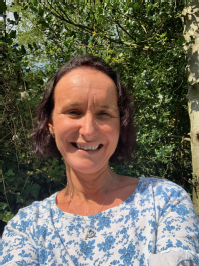
In this keynote, Nicola will share with delegates her experience of research, briefly touching on how she balanced her doctoral research with a full-time senior leadership role in school.
The main focus of the session; however, is to highlight the research opportunities available in schools and suggest ways in which teachers can successfully engage in research which are both manageable and beneficial to all.
This recording lasts for 60 minutes.
Roxy Batliwala-Withers: To what extent do school leaders impact the retention of early career teachers in urban schools?
This session would appeal to any prospective MA students, Early Career Teachers, or teachers aspiring to be in leadership/ leaders. The session will outline the project itself, including context, rationale, discussion of methodology , results and implications. This will all be supported by my reflections upon the research journey, and into the nitty-gritty parts of what this process actually holds.
This recording lasts for 30 minutes.
Catherine Knight: Making a difference through literacy
A summary of current research around reading, oracy and vocabulary, with practical evidence-based strategies to use in your classroom. Raising literacy is essential for progress in all subjects and I will offer strategies that could be applied in any secondary school faculty.
This recording lasts for just under 45 minutes.
Dr Claire Tyson: A school based journal club: Reflections and examples
Homewood School and Sixth Form Centre has maintained a thriving Journal Club for the last three years. In this series of recordings I reflect on how this has been achieved and share four recorded virtual meetings that we have created together in the COVID era of restricted social gatherings. This podcast would be of interest to anyone hoping to set up or join a journal club as well as any one interested in our featured topics: Black History in the school curriculum, supporting students with LGBT identities, Home Learning during the COVID-19 school closures, and recognising and respecting neurodiversity in the classroom.
The length of each podcast is listed next to its title.

Guidance for presenters
Please see this guidance on preparing content for the live and pre-recorded sessions.



